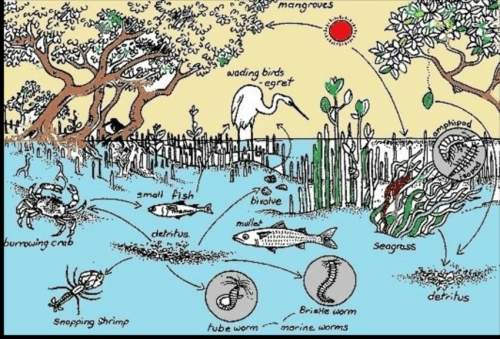
Biology, 05.11.2019 05:31 jdsfdujfi1598
Anew experimental pesticide is being tested by a large agricultural chemical company. an unfortunate side effect in plants treated with this new product is a decrease in atp production in the chloroplasts. (interestingly, production of atp in the mitochondria is unaffected.) which of the answer choices would you expect to be directly affected by the new pesticide? a. the synthesis of triose phosphates from 3-phosphoglycerateb. the transport of electrons along the photosynthetic electron transport chainc. the carboxylation of rubp by rubiscod. the oxidation of rubp by rubisco

Answers: 3


Another question on Biology



Biology, 21.06.2019 20:10
Fossils can only be formed when? if mud, silt or tar is in the area to preserve the fossil ierosion does not occur and allows the fossil to form oxygen and microorganisms cannot decay the bones the area is dry and does not contain mud or silt
Answers: 1

Biology, 22.06.2019 03:00
Where does all the water go? according to the environmental protection agency (epa), in a typical wetland environment, 39% of the water is outflow; 46% is seepage; 7% evaporates; and 8% remains as water volume in the ecosystem (reference: united states environmental protection agency case studies report 832-r-93-005). chloride compounds as residuals from residential areas are a problem for wetlands. suppose that in a particular wetland environment the following concentrations (mg/l) of chloride compounds were found: outflow, 60.4; seepage, 73.7; remaining due to evaporation, 26.4; in the water volume, 46.8. (a) compute the weighted average of chlorine compound concentration (mg/l) for this ecological system. (round your answer to one decimal place.) mg/l (b) suppose the epa has established an average chlorine compound concentration target of no more than 58 mg/l. does this wetlands system meet the target standard for chlorine compound concentration? yes. the average chlorine compound concentration (mg/l) is too high. yes. the average chlorine compound concentration (mg/l) is lower than the target. no. the average chlorine compound concentration (mg/l) is lower than the target. no. the average chlorine compound concentration (mg/l) is too high.
Answers: 3
You know the right answer?
Anew experimental pesticide is being tested by a large agricultural chemical company. an unfortunate...
Questions


Mathematics, 23.09.2020 16:01




English, 23.09.2020 16:01



Mathematics, 23.09.2020 16:01



Mathematics, 23.09.2020 16:01

Arts, 23.09.2020 16:01



Chemistry, 23.09.2020 16:01







